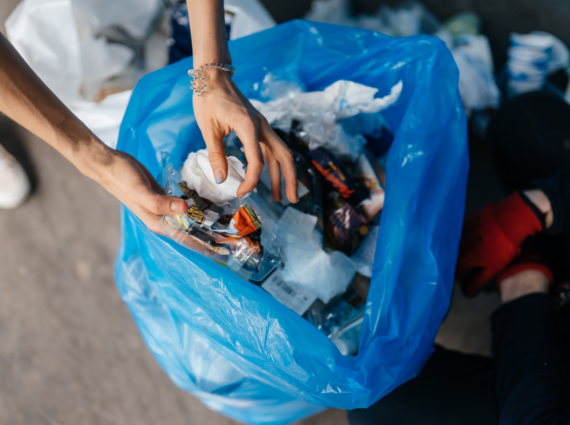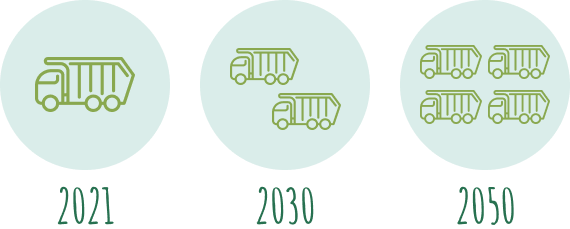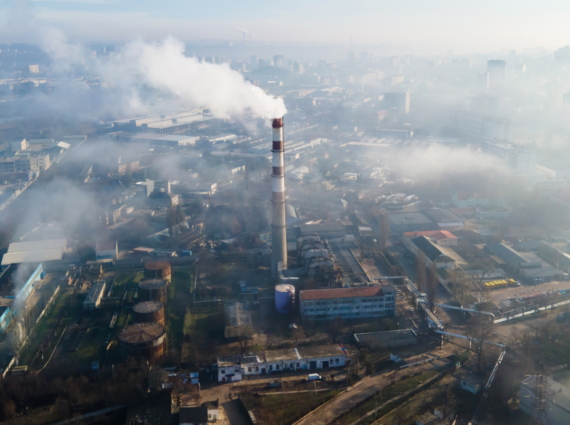On packaging:
The Problem + The SolutionThe packaging we rely on in our daily lives is resource-intensive to produce and carries harmful environmental side effects. Plastic packaging is extremely wasteful, and the current packaging systems has been optimized for pricing and efficiency without accounting for the environmental and public health impacts. Due to poor product design and lack of political infrastructure, the majority of plastic waste is sent to landfills or disposed of into the environment.
We need a solution to this linear ‘take, make, waste’ mode. The circular economy has the capacity to turn trash into treasure – it is regenerative by design and aims to gradually decouple growth from the consumption of finite resources. By taking a systemic approach to economic development designed to benefit businesses, society, and the environment, a circular economy can be the solution to our packaging problem.

More on Plastics:
Most plastics are petroleum-based (i.e., fossil fuels). Because of how they are produced, plastics often persist in our environments for decades, causing massive amounts of pollution. Less than 10% of all plastic ever created has been recycled. One estimate predicts that by 2050 there will be more plastic in our ocean than fish.) It’s become clear that plastics cause harm through the entirety of their lifecycle, from their creation to their disposal.
This challenge presents a unique opportunity for CPG companies to take a stand by increasing the use of sustainable materials throughout their product portfolio and co-creating end markets for recyclable materials.
If global plastics production continues under business as usual, the world will mismanage 7.7 gigatons of plastics over the next 20 years

That’s equal to 16x the weight of the entire population on earth!
If global plastics production continues under business as usual, the world will mismanage 7.7 gigatons of plastics over the next 20 years, according to new research from Google. To put that number into perspective, 7.7 gigatons is equal to 16 times the weight of the entire human population on earth today. –GreenBiz
Number of garbage trucks full of trash dumped into the ocean each minute in….

Each year, at least 8 million tonnes of plastics leak into the ocean – which is equivalent to dumping the contents of one garbage truck into the ocean every minute. If no action is taken, this is expected to increase to two per minute by 2030 and four per minute by 2050. –World Economic Forum
Plastic Production & Consumption

Over 90% of plastics produced are derived from virgin fossil feedstocks. This represents, for all plastics (not just packaging), about 6% of global oil consumption, which is equivalent to the oil consumption of the global aviation sector. –World Economic Forum

Packaging as a Social Justice Issue:
At OSC, we advocate for minimizing plastics because we know how harmful they are to our health and to our environment. We also recognize that the ability to minimize plastic use is a privilege not everyone can afford, and there are many who lack the purchasing power to participate. Our current end-of-life solutions are equally unjust. According to one study, “79% of incinerators are located in BIPOC communities.” Additionally, abundant plastic pollution in our oceans disproportionately impacts indigenous, coastal communities whose livelihoods depend on healthy, thriving marine ecosystems.
